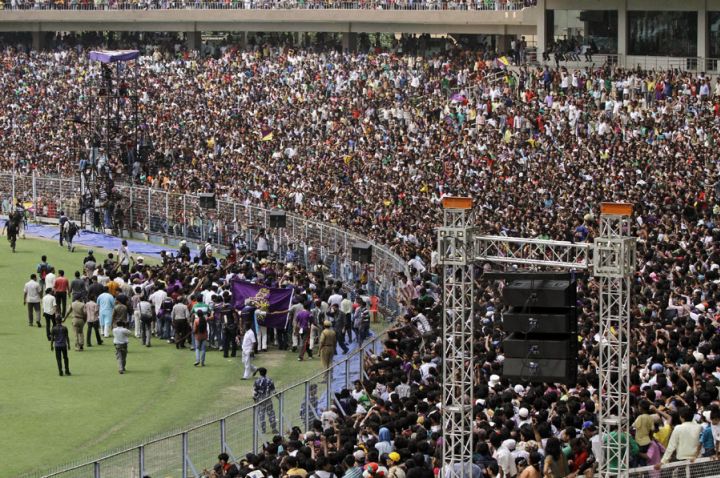Time for a Bengali reunion
The BCCI has missed a golden opportunity by not organising a Test between India and Bangladesh in Kolkata

In 1978, less than seven years after the Pakistani Army surrendered in Dhaka and Bangladesh was born, Pakistan and India resumed cricketing ties, playing a three-Test series that ended in a 2-0 win for Pakistan.
Prior to the Test matches, Pakistan announced it would relax some border-crossing restrictions and grant a predetermined number of tourist visas to Indians who wanted to visit Pakistan and watch the games. This offer was taken up with especial alacrity by residents of Punjab, many of whom were keen to visit their old stomping grounds and perhaps even make contact with old friends and acquaintances. Some Sikh families were keen to visit sites of religious pilgrimage - such as Nakana Sahib for instance - and were among the most enthusiastic applicants for Pakistani visas.
These Indian visitors to Pakistan, despite being small in numbers, added some undeniable colour to the proceedings during the Test series. Most memorably, in Lahore, during Kapil Dev's breezy innings of 15 and 43, which included a couple of what were to become his trademark lusty sixes, a Sikh gentleman ran out to the middle of the ground, garlanded Kapil, and ran back to the stands, waving to all and sundry, all the while left blissfully alone by the attending security guards. Those were innocent times indeed.
Years later, in 2004, when India visited Pakistan, many Indian visitors found their way across the border again, and found much to enthuse about while there: the food, the camaraderie, the chance to visit venues and locales previously only read of in history books. And yet again, there was a distinct sub-class of these tourists who found, on their visit to Pakistan, a chance to tap into the locally distinctive cultures associated with their own ethnic and linguistic groups.
I mention this little slice of history because I am reminded of it by the staging of the Asia Cup in Bangladesh. Not merely because this tournament affords a chance for South Asians of various stripes to visit Bangladesh but because it reminds me of a golden opportunity missed by the BCCI in its cricketing relationship with Bangladesh: organising a Test between India and Bangladesh in Kolkata.
Since their promotion to ICC Full Member status, Bangladesh have not been invited to play a Test match in India. The BCCI has sent its team across the border but has declined to play host. By organising a Test match in Kolkata it could address this abdication of its responsibility to support cricket in its neighbour and also contribute to the kind of cultural contact made possible by border crossings.
When Pakistan was created in 1947, Bengal was partitioned too; West and East Bengal were cast asunder. A Test match in Kolkata between India and Bangladesh would enable a Bengali reunion of sorts - much like the 1978 Lahore Test enabled a Punjabi one. The border between India and Bangladesh has not been as fraught as the one between India and Pakistan but still, the larger significance of staging a Test in Kolkata would be unmistakable. If the BCCI was particularly ambitious it could participate in the joint organisation of related cultural events: perhaps a Bengali literary festival, perhaps a musical one, to be staged during the Test match.
What I am describing here sounds unabashedly like a public relations exercise of sorts, a staged encounter. But there would be serious cricket at the heart of it: a Test at one of India's greatest and most storied grounds, hosting for the first time, a particularly appropriate guest.
Samir Chopra lives in Brooklyn and teaches Philosophy at the City University of New York. He tweets here
Read in App
Elevate your reading experience on ESPNcricinfo App.